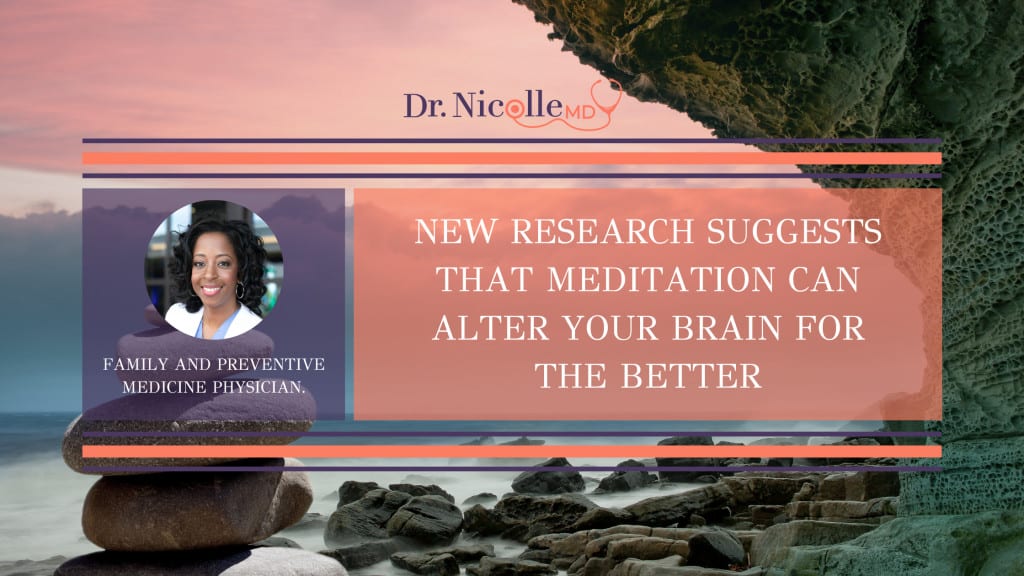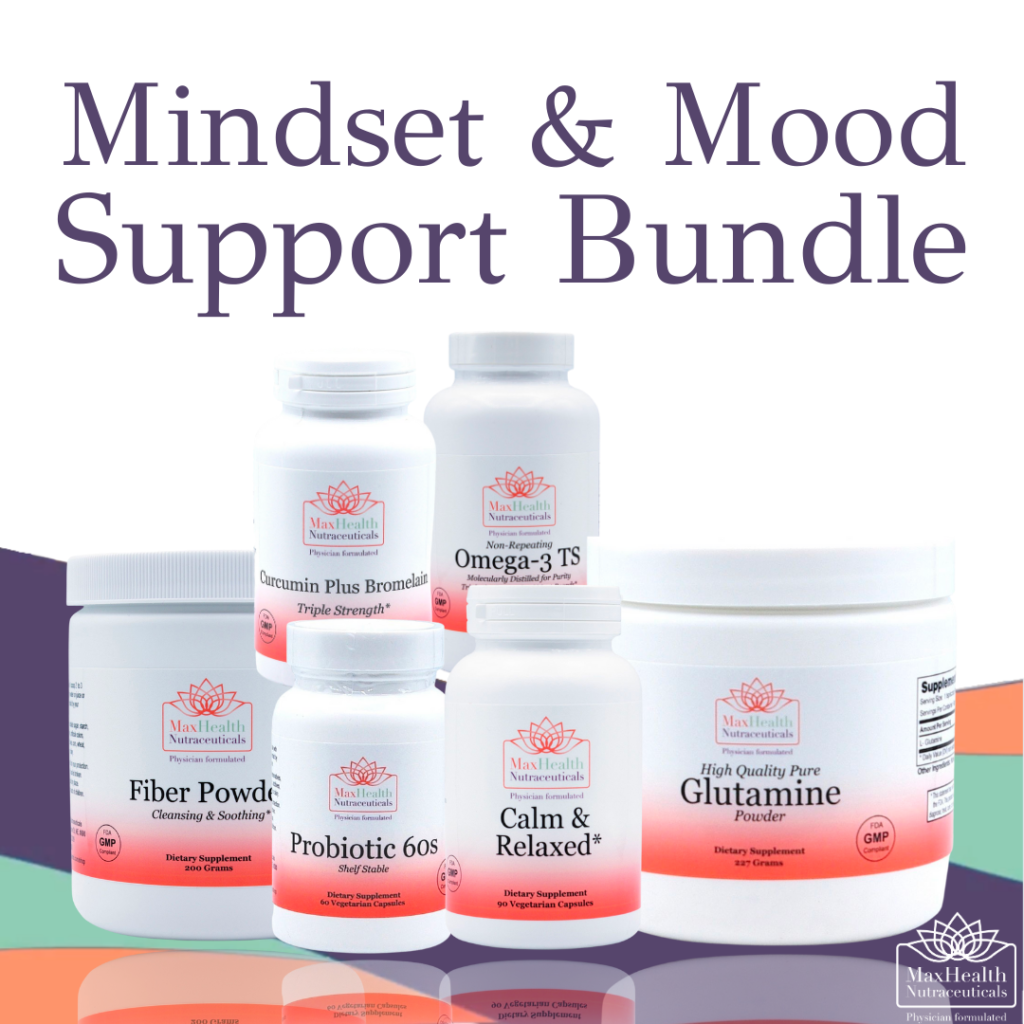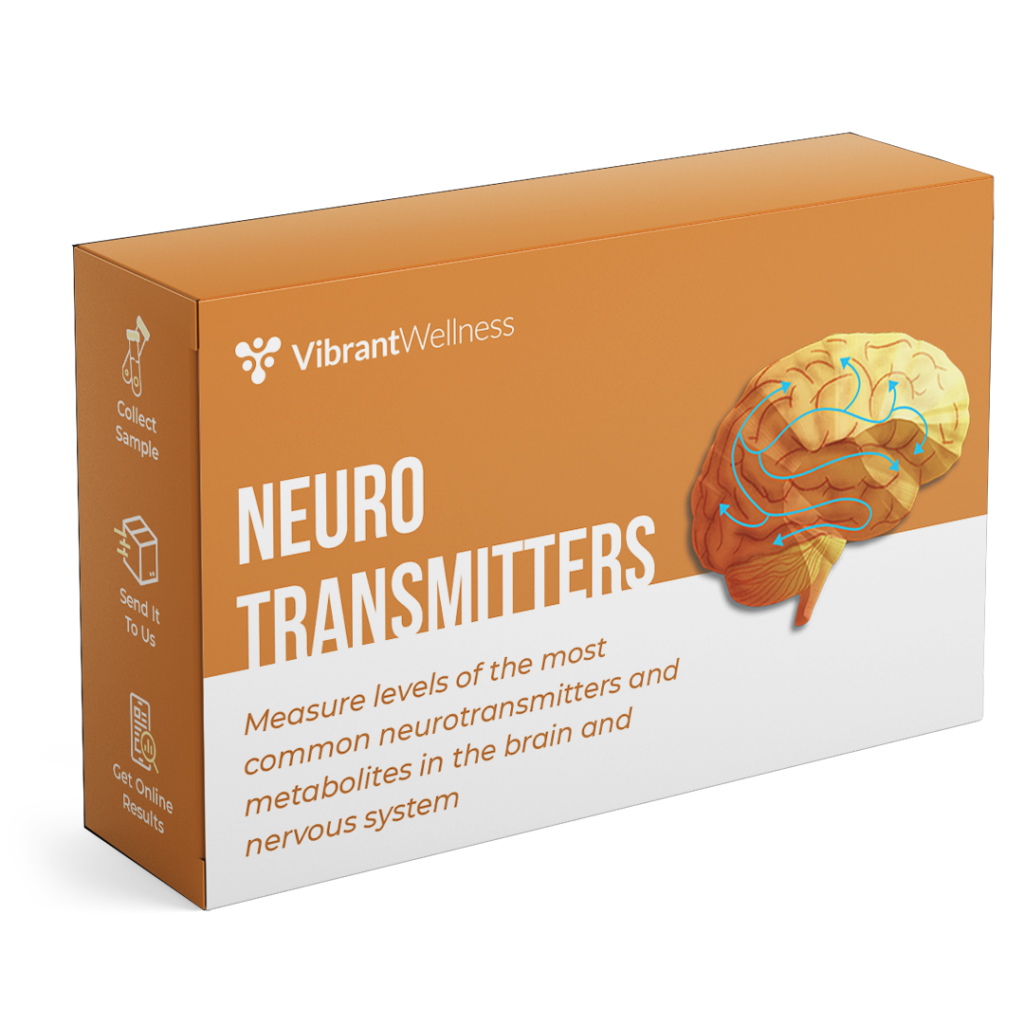

Hello and welcome to Motivation and Mindset Mondays! Today, let’s talk about new research that suggests that meditation can alter your brain for the better. Meditation is life-changing and affirming for the millions of people who practice it. Recently, there’s been some fascinating research into how practicing meditation can actually make positive changes to your brain’s structure.
The academic journal, Psychiatry Research: Neuroimaging, recently published a study about meditation. This study, completed by Massachusetts General Hospital clinicians, looked at a small number of subjects and used brain imaging equipment to look at their brains before and after an 8-week meditation class.
The results were astonishing: for meditators, the areas of the brain that focus on being compassionate toward others and being self-aware got larger and the brain areas devoted to stress actually got smaller. Experts are so sure of the positive mind-altering benefits of meditation that it’s beginning to be taught in some grade schools.
For vibrant health, it seems that meditation should rank up there with your diet and exercise goals!

Follow these tips to get started with meditation so you, too, can enjoy its positive benefits:
1. Find 1 or 2 times a day you can meditate.
Before breakfast is great. Just before dinner also works.
2. Initially, plan to spend 10 minutes for each meditation session.
You’ll gradually increase your time by 5 minutes every other week or so, until you reach 30 minutes.
3. Find a quiet space.
If you have your own den or study, that’s probably a good place to meditate. Your bedroom might be another. If you have a quiet space in nature, that would be a fabulous meditation site. There must be silence or as little noise as possible in your surroundings.
4. Ensure you’ll have no interruptions.
Meditating before your kids or spouse arise might work for you. If that’s not possible, ask family members not to disturb you during meditation.
5. Cover or move clocks.
Ensure you can’t see them from where you’re sitting. You want to de-focus from everything around you, particularly from watching the clock.
6. Wear comfortable clothing.
Wear comfortable clothing. Stretchy or baggy clothing like athletic wear often works fine. Shoes or socks are not necessary. However, if you think your feet are going to get cool, go ahead and wear socks.
7. Get into a comfortable position.
Most people find that sitting on carpeting, a soft rug, or a yoga mat works best. If you feel you need to lean against something, try sitting on the floor while leaning against your bed or sofa.
- Cross your legs Indian-style if it’s comfortable for you. Either clasp your hands loosely in your lap or extend your arms to balance the top of your wrists on your knees, with your hands gently cupped upward.
8. Use a gentle-sounding timer.
Many people like an external stimulus to signal the end of their meditation session. However, avoid startling yourself after you meditate since it defeats the purpose of meditating in the first place. Most cell phones these days have a wide variety of timer sounds with a few of them on the gentler side.
- For example, sounds like a harp, sonar alarm, gong, or xylophone are particularly helpful to use when emerging from meditation.
9. Meditate.
The scene is set. Get comfortable. Close your eyes. You can also stare at a spot on the wall or an object of beauty, like a vase of flowers or picture of a sunset or the beach, if you prefer. Breathe. Listen to the sound of your breath and clear your mind. Should your mind wander, just re-focus on your breathing.
- After some practice, you’ll find yourself going into an altered state, almost like sleeping. You’ll experience feelings of tranquility. When your timer sounds, take some seconds before gently arising and going about your day.
If you get into the habit of practicing meditation twice a day for 10 minutes, every day, you’ll soon be amazed at the results you achieve. Alter your brain by meditating each day. You’ll live a more enriched life and have healthier relationships with your inner self and others.
I would love to give you a free resource sheet to support your quest for a healthy mindset. Click the button below to receive your gift.
I really wanted to talk about this topic today because I wanted to share some lifestyle-based strategies to improve your overall mindset and mental health, which in turn improves your life. You must do the internal work to improve your overall health. You can do this by learning what motivates you and working each day on improving your mindset. Your thoughts control your feelings, which controls your behavior. You can cultivate certain behaviors and practices that will not only enrich your life, but that you can pass on to your family, friends, and community, so that you can leave a legacy of health to your loved ones.
If you are familiar with my approach, I use functional medicine and lifestyle medicine as the first line of treatment, before medications, to treat lifestyle-related chronic diseases. Lifestyle-related chronic diseases include diabetes, hypertension, obesity, some cancers, just to name a few. Lifestyle modifications, such as stress reduction and mindfulness exercises, can help you feel better about yourself and your life. In certain cases, these approaches may even outperform pharmaceutical therapy. But I always tell my patients that conventional medications may be appropriate at this time to prevent catastrophic illness, but over time, you can work to make the necessary lifestyle changes to possibly reduce and/or eliminate medications. Please remember to always consult your physician for your particular needs and circumstances prior to making any decisions whatsoever.
Is Dietary Supplementation Right For You?
Did you know that what you eat can have a significant impact on your mood and mindset? A poor diet can lead to decreased energy levels, low moods, and even depression. Conversely, a healthy diet can improve your mood, help you feel more energetic, and boost your overall sense of well-being.
For some people, vitamin and mineral supplements offer important health benefits. Supplements are designed to fight deficiencies found in our diet and complement the food we eat regularly. Supplements are basically “helping hands” to our daily food.
When stress, anxiety, and depression creep in, it can be difficult to stay motivated and keep your head in the game. Fortunately, dietary supplementation can help. Certain vitamins, minerals, herbs and other natural ingredients have been shown to improve moods and reduce stress levels. For example, B vitamins (such as B6 and B12) are essential for maintaining healthy brain function and producing energy. Omega-3 fatty acids, which can be found in fish oil supplements, are known to reduce stress hormones and promote relaxation. Magnesium is also important for mental health – it helps regulate stress hormones, reduce anxiety levels and improve quality of sleep.
In addition to these supplements, there are also a number of herbal remedies that can help with stress management. Herbs such as lavender, chamomile and passionflower can be helpful for calming the body and reducing stress levels. Valerian root is another popular stress-relieving herb – it helps to relax the mind and promote restful sleep.
Ultimately, dietary supplementation can play an important role in improving your mindset and mood. If you’re feeling stressed or down, consider adding some of these supplements to your daily routine! They may just be the key to unlocking your mental wellbeing.
So… if you are unable to eat better and need supplementation, the supplements in my Mindset and Mood Support Bundle may provide the extra boost you need.
These are my favorite Mood Support Supplements to use! This Mindset and Mood Support Bundle will ensure you have the intake of the important vitamins, minerals, and probiotics to decrease inflammation and boost your innate wellness day and night. Taken together, it’s a solid plan for increasing your body’s natural resiliency while you improve your sleep, decrease your stress, and improve your mental clarity, naturally.
Tools For Motivation And Mindset
Meditating
Although you don’t need a cushion to meditate, you may want to consider using one at some point. You could meditate in a chair, or simply sit on the floor if you want. You can also use pillows or cushions from your furnishings to try out. Cushion, chair, bench, floor – it’s all good. Eventually, though, if you’re not sitting upright on a chair, you’ll probably do well to buy a dedicated meditation cushion. The cushion will support your sitting posture and help you create an appealing mindfulness corner that will encourage you to practice every day. I recommend this meditation cushion and mat bundle.
Journaling
If you struggle with stress, depression, or anxiety, keeping a journal can be a great idea. Even if you don’t have these conditions, journaling can enhance your life in many ways. Having difficulty processing your thoughts and emotions? Journaling can help clear that mental clutter and move towards a positive mindset. Research suggests that keeping a journal can have positive impacts on both mental and physical health. So, to start you on your journey, I recommend this self care journal.
Yoga
Yoga can be a great way to improve your strength and flexibility, manage your stress, improve your heart health, and lose weight! I recommend using a grounded yoga mat to connect yourself with the earth and reduce inflammation.
Food!
Remember, living a healthy lifestyle including eating a whole foods plant-based diet, regular physical activity, meditation and mindfulness, as well as healthy and supportive relationships are the best ways to support mental health.
Please talk with your doctor about any complementary health approaches, including supplements, you use. Let me know what you think in the comment section below.
Still Feeling A Little “Off”?
You may want to consider looking at your neurotransmitter levels. We’ve all heard of neurotransmitters—those chemical messengers that facilitate the transmission of signals from one neuron to the next across a synapse. But, what do they actually do?
Neurotransmitters influence and regulate a wide range of processes, from mental performance and emotions to pain response and energy levels. It’s no wonder why many people seek professional help when their neurotransmitter levels become imbalanced. Let’s take a closer look at how neurotransmitters work and what options are available for addressing imbalances.
What Is a Neurotransmitters Test?
The best way to determine if there’s an imbalance is through testing. The Vibrant Wellness Neurotransmitter Test is designed to measure levels of various hormones and chemicals in the brain and peripheral nervous system that play an important role in mood, memory, aging, balance, nervous function, movement, pain perception, eating behavior, sleep/wake cycles, stress biology, heart rate variability (HRV), etc. The Neurotransmitters panel measures levels of important hormones and chemicals in the brain and peripheral nervous system—including serotonin (mood), dopamine (motivation), epinephrine/norepinephrine (energy), GABA (relaxation) , glutamate (balance), acetylcholine (memory) , histamine (inflammation).
It’s also important to note that this test looks at both active levels as well as metabolites which helps identify underlying causes for imbalances such as poor absorption or metabolism. With this data in hand, you can start making changes that help restore balance.
Imbalances in these chemicals can lead to a variety of symptoms including irritability, anxiety or depression; cognitive issues such as forgetfulness; sleep disturbances; fatigue; digestive problems; low libido; weight gain or loss; etc. A Neurotransmitter test is used to detect underlying imbalances that may be causing these symptoms.
What Are the Benefits of a Neurotransmitter Test?
A neurotransmitter test can provide valuable insight into your overall health. It can identify any underlying hormonal or chemical imbalances that may be contributing to your symptoms. Once these imbalances have been identified, you can work with your healthcare provider to develop an individualized treatment plan that addresses the root cause of your symptoms. This could include lifestyle changes such as diet modifications or exercise regimens as well as supplements or medications designed to correct any deficiencies in neurotransmitter production.
What Can I Do if My Test Comes Back Positive?
If your test comes back positive for an imbalance in one or more neurotransmitters, there are several things you can do to get back on track. The first step is to identify any underlying lifestyle factors that could be contributing to the imbalance (such as sleep deprivation or poor nutrition). Once you’ve identified those factors, you can begin making changes – such as improving your diet or getting more exercise – to help restore balance. Additionally, certain supplements may also be recommended by your doctor or health care provider in order to promote optimal neurological functioning and support healthy neurotransmitter levels.
In A Nutshell…
Neurotransmitters are essential for a healthy mind and body – they influence mental performance and emotions while helping regulate key processes like pain response and energy levels. If you’re feeling off balance lately or experiencing unusual symptoms like insomnia or digestive issues it might be worth looking into whether there’s an underlying imbalance in your neurotransmitter levels causing your discomfort. A Neurotransmitters panel test will give you valuable insight into what’s going on within your body so you can take corrective action if needed! With the information gained from this test you’ll be able to better understand what’s going on within your body and make informed decisions about how best to bring yourself back into balance!
PLEASE NOTE: If you or someone you know is experiencing severe stress, anxiety, depression and/or other mental health issues, please contact SAMHSA’s National Helpline, 1-800-662-HELP (4357), (also known as the Treatment Referral Routing Service) or TTY: 1-800-487-4889. This is a confidential, free, 24-hour-a-day, 365-day-a-year, information service, in English and Spanish, for individuals and family members facing mental and/or substance use disorders. This service provides referrals to local treatment facilities, support groups, and community-based organizations. Callers can also order free publications and other information.
Dr. Nicolle Martin
Some of the links in this article are "affiliate links", a link with a special tracking code. This means if you click on an affiliate link and purchase the item, we will receive an affiliate commission.
The price of the item is the same whether it is an affiliate link or not. Regardless, we only recommend products or services we believe will add value to our readers.
By using the affiliate links, you are helping support our Website, and we genuinely appreciate your support.
Last updated on December 6th, 2021 at 03:09 am

Minimize Medications. Maximize Health.
Are you super busy but need to take control of your health? Are you tired of being tired? Subscribe to my “Minimize Medications, Maximize Health Blog” and I’ll give you 7 Tips to Get Healthy in No Time absolutely FREE.







